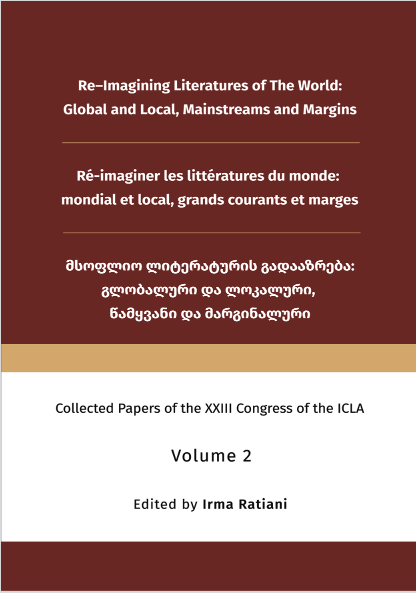პოლიტიკა და პოეტიკა: სამეცნიერო ლიტერატურა პოსტსაბჭოთა პერიოდის რუსულ-ქართული ლიტერატურული ურთიერთობების შესახებ
Contenu principal de l'article
Résumé
In the post-Soviet period, literary relations did not remain beyond political influence. The place of reflection on the socio-political context of the collapse of the Soviet Empire proved to be the literary processes of the mentioned epoch. Relicts of political discourse can be found not only in fiction but also in scientific literature. Analyzing Soviet problems in this way has led to an expansion of the post-imperial / postcolonial study area.
In this paper, I will discuss the works created as a result of the fundamental research conducted by German Slavists, Mirja Lecke and Elena Chkhaidze “The Development of Russian-Georgian Literary Relations after the Perestroika”. This study was widely recognized in the Slavic world. The materials discussed are E. Chkhaidze's monograph “Politics and Literary Tradition: Russian-Georgian Literary Relations after the Perestroika” (2018) as well as several important publications by Mirja Lecke dedicated to these issues.
In her monograph, Elene Chkhaidze introduces the concept of “Imperial Literary Tradition”. Therefore, by analyzing artistic and scientific material, she maintains that this tradition is formed, developed and broken in parallel with the formation, development and disintegration of the empire. The literary process, as a full-fledged event, also depends on political factors. The scholar's work is based on the rich history of Georgian-Slavic studies. To analyze the current problem, she uses modern, interdisciplinary approaches of Western European and American scientific schools.
E. Chkhaidze's work contains many complex theoretical concepts – trauma, nostalgia, nations and nationalism, semiotics of the city (Tbilisi), the city as a place of struggle and life, a meeting place for people of different nationalities, hybridism, in the research special attention is paid to post-Soviet Russian conflicts.
Post-Soviet / postcolonial events in Georgia and Russia are viewed not in the “East-West” but in the “North / South” prism. The study covered works of art, critical literature and research by Georgian and Russian-speaking authors living in Georgia, Russia and abroad until 2014. A complete overview of the trends and scientific papers of the scientists of the Soviet and post-Soviet periods is given, on which the researcher relies. This is the first and only such study of the post-Soviet period.
It should be noted that this vector of German comparative literature, with its methodological concepts, will be of great help not only in the process of studying the inter-literary relations of not only Georgian-Russian but also of the former USSR republics.
